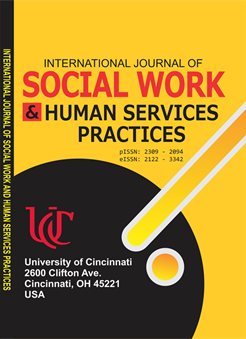INTERNATIONAL JOURNAL OF SOCIAL WORK AND HUMAN SERVICES PRACTICES (IJSWHSP)
DARING TO THRIVE: THE UNSEEN FORCE OF COURAGE IN NAVIGATING LIFE'S CHALLENGES AND CATALYZING SUCCESS
E-ISSN: 2122-3342
P-ISSN: 2309-2094
DOI: https://iigdpublishers.com/article/338
Courage plays a pivotal role in overcoming life's challenges and achieving success, yet it remains an underexplored psychological trait compared to factors like intelligence, perseverance, and resilience. This study introduces and validates an integrated courage intervention method, combining cognitive behavioral therapy, mindfulness training, and role-playing to enhance individuals' courage across cognitive, emotional, and behavioral dimensions. The research aims to understand the mechanisms through which courage influences psychological well-being and success, providing empirical evidence and practical strategies for cultivating courage in various contexts, such as education, the workplace, and clinical settings. It is expected that courage interventions significantly reduce anxiety and depression while increasing well-being and achievement, highlighting the need for further research and application in diverse populations.
Yinan Zhang
Bandura, A. (1997). Self-efficacy: The exercise of control. Freeman.
Baum, J. R., & Locke, E. A. (2004). The relationship of entrepreneurial traits, skill, and motivation to subsequent venture growth. Journal of applied psychology, 89(4), 587.
Beck, A. T. (1979). Cognitive therapy and the emotional disorders. Penguin.
Carver, C. S., & Scheier, M. F. (1994). Situational coping and coping dispositions in a stressful transaction. Journal of personality and social psychology, 66(1), 184.
Field, A. (2013). Discovering statistics using IBM SPSS statistics.
